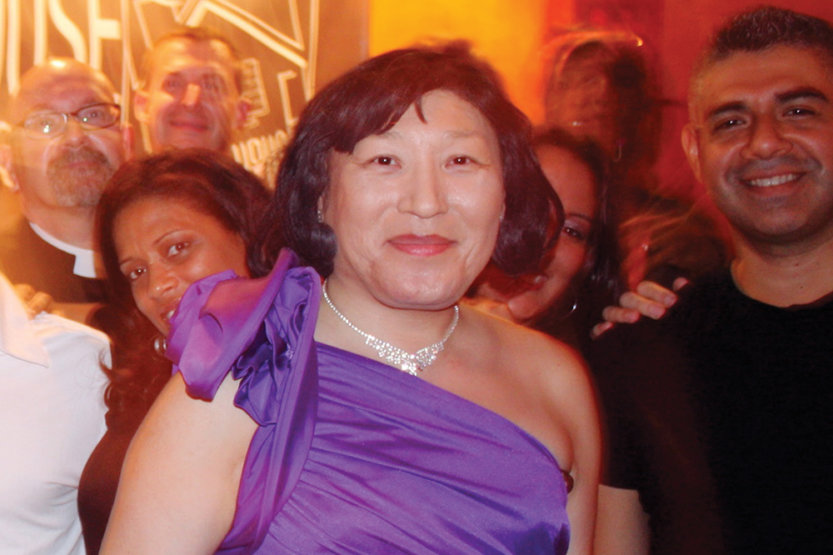Class Notes Profile: Inclusion Advocate
 “I’ve learned that the only way for many people to begin to see structural oppression is to relate it to their lives,” says transgender rights activist Pauline Park, pictured at a Queens Pride House gala. (Image courtesy of Pauline Park)
“I’ve learned that the only way for many people to begin to see structural oppression is to relate it to their lives,” says transgender rights activist Pauline Park, pictured at a Queens Pride House gala. (Image courtesy of Pauline Park) “I don’t have the luxury of aligning myself with one issue,” says Pauline Park, PHD ’94 LAS. As a leader in the burgeoning transgender rights movement, she challenges the “old school,” tidy view of an assimilationist discourse. “There have been people ‘like us’ in society since pre-history,” she says. “We’ve always been here.”
That said, Park is no stranger to firsts. In her current home in New York City, she co-founded the Out People of Color Political Action Club, the first political club by and for LGBT people of color. In 2005, she became the first openly transgendered grand marshal of the NYC Pride March. She conducted the first transgender sensitivity training sessions for any major hospital.
Born in Korea and adopted by American parents who raised her in the U.S., Park now is chair and co-founder of the New York Association for Gender Rights Advocacy and board president of the Queens Pride House, an LGBT social services organization.
Park has conducted hundreds of transgender sensitivity trainings, and for many of the groups she visits, she is the first transgendered person they’ve seen in a professional context. Radical as her presence may be, Park believes that “representation is not enough. We need to create a space for those who don’t identify as either men or women. It can’t be an either/or; there has to be a space for a both. We can best do that by pursuing a broadly conceived movement for social justice that links LGBT rights to the struggles of other marginalized communities.”
Park is motivated by the “light bulb” moments she witnesses through interaction. “I’ve learned that the only way for many people to begin to see structural oppression is to relate it to their lives,” she says. “My job is to open minds.”

